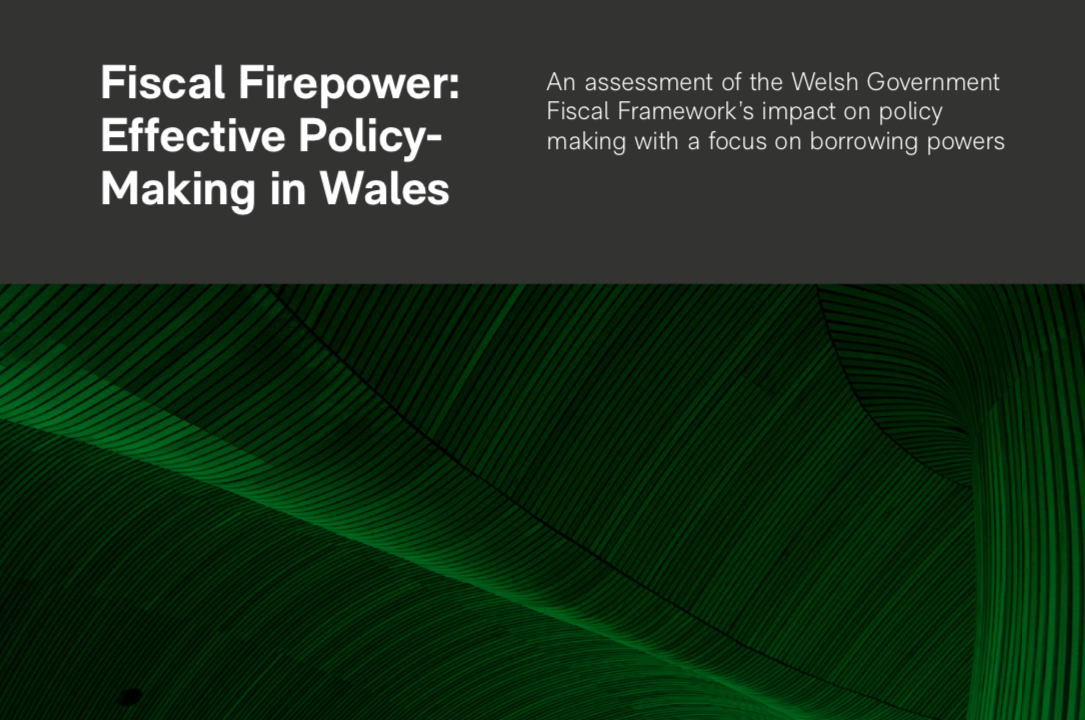
In Fiscal Firepower and Effective Policy Making in Wales, the IWA’s Economic Policy Lead Harry Thompson argues that reforming the Welsh Government’s borrowing powers is a key option to better enable transformative policy making in Wales.
Despite having fairly strong powers and a budget in the tens of billions, our research finds that the Welsh Government only has a limited ability to kickstart major projects to improve people’s lives.
Wales faces urgent challenges including climate change, a cost-of-living crisis, dealing with the fallout of the Covid-19 pandemic and its impact on public services, a broken housing system, and more.
These are big problems that will require big solutions. And the IWA is concerned that despite the Welsh Government having fairly sweeping powers in some areas and a budget in the tens of billions, this doesn’t tell the full story.
We think that the Welsh Government has a lack of ‘fiscal firepower’, with a huge part of its budget essentially pre-committed to public service delivery. It has relatively little available finance over-and-above that, needed to effectively conduct major projects that could set the Welsh economy and society on the different path it clearly needs.
Many policy proposals can only expand to the limits that finance allows it to. The Welsh Government is limited in its ability to conduct policy even in devolved areas such as transport and housing by its fiscal limitations.
This paper seeks to open a debate about the impact of fiscal limitations on policy-making by focusing on the Welsh Government’s limited borrowing cap.
Our recommendations are as follows:
- The IWA supports the Welsh Government’s calls for it to have prudential borrowing powers and it should continue to explore the case for this. It should publish its up to-date case for having these powers in response to this report in order to push this important issue more fully onto the political agenda.
- The UK Government should accept the insufficiencies of the Welsh Government’s fiscal framework and accept the Welsh Government’s case for prudential borrowing powers via the National Loans Fund, if it is able to protect its own position from the ‘moral hazard’ of implicit bailouts by means such as further tax devolution or strong repayment guarantees. An increased borrowing cap would provide an improvement on the current system, but is less preferable to prudential borrowing powers for the Welsh Government.
- Any future amends to the fiscal framework should seek to maximise flexibility for the Welsh Government in the use of reserves and borrowing, and between resource and capital. For example, greater flexibility within borrowing powers should be explored, including allowing borrowing for revenue as well as capital expenditure in order to increase the number of policy options available to the Welsh Government.
- The lack of fiscal firepower for the Welsh Government should be a core consideration for all policy-makers, academics, and the Constitutional Commission.
Read our full report.
Discussions and debates that drive Wales forward.
Join Wales’ leading independent think tank.

